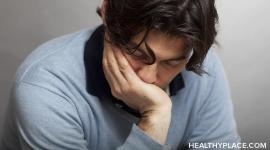Acute Stress Disorder Symptoms

Symptoms of acute stress disorder are typically severe and disruptive, as acute stress disorder is a reaction to a traumatic event that impacts all areas of someone’s life (Traumatic Events and How to Cope).
Symptoms of acute stress disorder can be:
- Physiological; the sympathetic nervous system is activated, increasing heart rate and blood pressure as well as constricting blood vessels in order to prepare the person for fight or flight
- Behavioral changes
- Subjective; the person’s thoughts and emotions change
DSM-5 Categories of Acute Stress Disorder Symptoms
The DSM-5 delineates five categories of acute stress disorder symptoms. To receive a diagnosis of acute stress disorder following a traumatic event, someone must experience at least nine symptoms that fall into any of these five categories:
- Intrusion symptoms
- Negative mood
- Dissociative symptoms
- Avoidance symptoms
- Arousal symptoms
Intrusion Symptoms of Acute Stress Disorder
Intrusion symptoms of acute stress disorder impose themselves into the person’s thoughts, emotions, and/or behavior. They’re involuntary; the person isn’t trying to ruminate over what happened. Intrusion symptoms of acute stress disorder can include:
- Repetitive, distressing memories of the traumatic event
- Recurrent, distressing dreams/nightmares related to the event
- Flashbacks; re-experiencing the trauma as if it were currently happening
- Intense physiological reactions in response to triggers that remind the person of the traumatic event
Symptoms of Acute Stress Disorder Involving Negative Mood
Negative mood involves:
- A constant inability to feel positive emotions such as happiness, joy, satisfaction, love, desire for intimacy, etc.
- An exclusive ability to feel negative emotions such as fear, sadness, despair, anger, guilt, shame, etc.
Dissociative Symptoms of Acute Stress Disorder
Dissociation is an involuntary defense mechanism that allows someone to remove him/herself from the intensity of acute stress disorder. Dissociative symptoms of acute stress disorder involve:
- Decreased awareness of surroundings
- An inability to remember important aspect(s) of the trauma (dissociative amnesia)
- Numbing
- Depersonalization; the sense that one isn’t real/an altered sense of self
- Derealization; the sense that surroundings aren’t real/an altered sense of the world
Avoidance Symptoms of Acute Stress Disorder
People experiencing acute distress disorder frequently avoid situations that remind them of the traumatic event or those in which they feel out of control. The avoidance includes:
- External reminders such as people, places, activities, objects, etc.
- Internal reminders such as memories, thoughts, feelings
Arousal Symptoms of Acute Stress Disorder
Arousal symptoms are a survival instinct, part of the fight-or-flight response. Arousal is supposed to be a protective mechanism, but in acute stress disorder, arousal is prolonged and problematic. Symptoms of acute stress disorder involving arousal include:
- Sleep problems
- Anxiety
- Irritability
- Anger/aggression
- Hypervigilance
- Difficulty concentrating
- Exaggerated startle response, jumpiness
Effects of Acute Stress Disorder
The effects of acute stress disorder can disrupt all areas of functioning. Among the effects of acute stress disorder are:
- Depression
- Thoughts of suicide
- Shame
- Self-blame, survivor guilt
- Distrust
- Withdrawal
- Absenteeism
- Refusal to talk about the event
- Difficulty self-soothing/turning to substance use
- Anxiety
- Fear of losing control or going crazy
Acute Stress Disorder Can Be A TRAP
Giarratano (2004) explains that many people feel trapped by their symptoms of acute stress disorder and uses a TRAP acronym to explain the symptoms and effects of acute stress disorder:
- Trance; people become numb, feeling like a robot
- Re-experience; intrusive memories and thoughts keep people stuck
- Avoidance; people begin to avoid life
- Physical tension; people remain in a state of heightened arousal
The symptoms of acute stress disorder can significantly reduce mental health and well-being. They are indeed a trap, but it’s possible to treat acute stress disorder and break free from this trap.
APA Reference
Peterson, T.
(2021, December 23). Acute Stress Disorder Symptoms, HealthyPlace. Retrieved
on 2025, December 20 from https://www.healthyplace.com/ptsd-and-stress-disorders/acute-stress-disorder/acute-stress-disorder-symptoms

